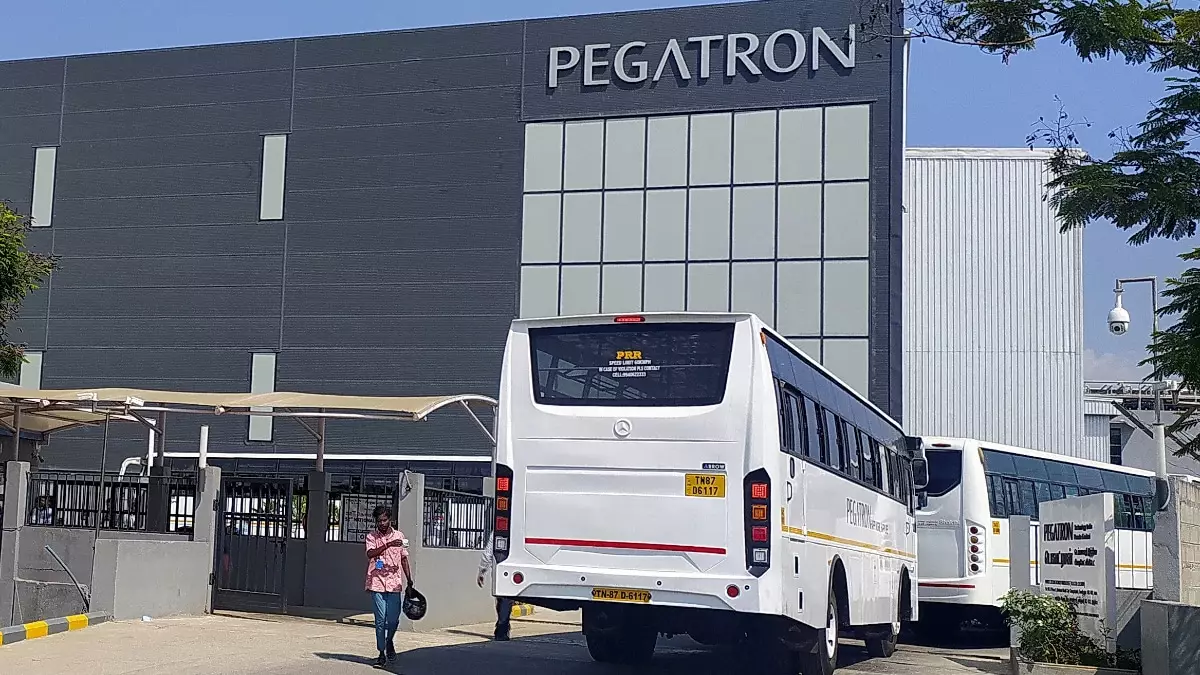The recent fire incident at Tata Group’s iPhone component manufacturing facility in Hosur, Tamil Nadu, has raised significant concerns regarding Apple’s supply chain and production capabilities in India, especially with the festive season fast approaching. As one of the key suppliers of iPhone back panels and other critical components, the disruption caused by this unfortunate event could have far-reaching implications for both Tata and Apple.
The blaze at the Hosur plant halted production indefinitely, disrupting the manufacturing processes that are essential for meeting the anticipated surge in iPhone sales during the festive season in India, which typically occurs from late October to early November. With estimated local sales of around 1.5 million units for iPhone models 14 and 15, industry analysts have forecasted that Apple may struggle to meet up to 15% of this demand due to the fire. This situation places a significant burden on the iPhone supplier network and raises questions about Apple’s ability to maintain its market share during a peak sales window.
In light of this setback, some analysts suggest that Apple might be compelled to import critical components from suppliers based in China or other countries. This approach may help to alleviate the immediate impact of the production halt, but it could also lead to increased costs and complexities in logistics. The need for a rapid response to ensure that products remain available for eager consumers illustrates the intricacies of modern supply chains.
While Apple typically maintains a stock of components for three to four weeks, some sources indicate that they might have an eight-week supply of back panels. However, if the suspension of production continues, the potential need to establish an additional assembly line in China or add shifts to existing ones could emerge as a viable solution to secure the necessary parts for Indian manufacturers.
This event has not only highlighted the vulnerabilities within Apple’s supply chain but also underscored the broader issues that beleaguer the electronics manufacturing sector in India. Despite efforts from Prime Minister Narendra Modi to bolster foreign investments through initiatives like “Make in India,” incidents like this fire raise questions about the safety and stability of manufacturing in the country.
This incident is not isolated; Apple has faced multiple disruptions in the past due to various incidents, including fires and labor disputes involving its suppliers in India. For instance, previous fires at Foxlink and Pegatron forced temporary halts in operations, emphasizing the challenges faced by both domestic and foreign manufacturers within India’s rapidly evolving electronics landscape.
These setbacks compel industry insiders and analysts to call for enhanced safety and operational standards within manufacturing facilities, which are essential for solidifying India’s position as a competitive hub for global electronics production. The emergence of these challenges serves as a reminder that while India is a promising market for electronics manufacturing, significant work remains to be done to mitigate risks and improve operational stability.
Tata Group represents a promising partner for Apple as the latter diversifies its supply chain beyond China. Estimates indicate that India could contribute 20-25% of total global iPhone shipments this year, a substantial increase from previous years. This growth potential highlights the importance of resolving current issues swiftly to maintain momentum in attracting further investment.
As Tata Group continues its expansions, including plans for another plant producing complete iPhones, the incident raises questions about future timelines and operational robustness. The company must demonstrate resilience and adaptability, not only to ensure the swift recovery of the affected plant but also to address the ongoing challenges faced in the manufacturing sector.
The recent fire at Tata’s Hosur plant serves as a wake-up call for Apple and the broader electronic manufacturing community in India. While immediate actions may help mitigate the disruption, long-term strategies must be implemented to ensure that such events do not hinder the progress towards establishing India as a major player in global electronics manufacturing. The path ahead may be fraught with challenges, but addressing these vulnerabilities is crucial for sustained growth in this sector.


Leave a Reply